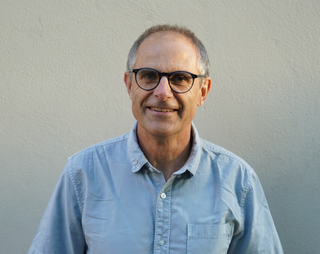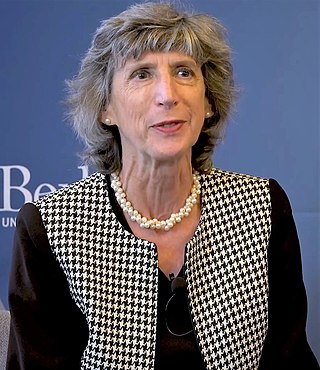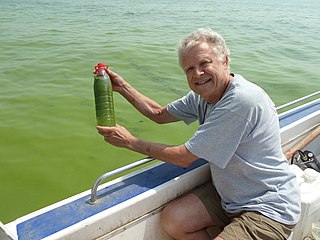Related Research Articles

The carbon footprint (or greenhouse gas footprint) serves as an indicator to compare the total amount of greenhouse gases emitted from an activity, product, company or country. Carbon footprints are usually reported in tons of emissions (CO2-equivalent) per unit of comparison; such as per year, person, kg protein, km travelled and alike. For a product, its carbon footprint includes the emissions for the entire life cycle from the production along the supply chain to its final consumption and disposal. Similarly for an organization, its carbon footprint includes the direct as well as the indirect emissions caused by the organization (called Scope 1, 2 and 3 in the Greenhouse Gas Protocol that is used for carbon accounting of organizations). Several methodologies and online tools exist to calculate the carbon footprint, depending on whether the focus is on a country, organization, product or individual person. For example, the carbon footprint of a product could help consumers decide which product to buy if they want to be climate aware. In the context of climate change mitigation activities, the carbon footprint can help distinguish those economic activities with a high footprint from those with a low footprint. In other words, the carbon footprint concept allows everyone to make comparisons between the climate-relevant impacts of individuals, products, companies, countries. In doing so, it helps to devise strategies and priorities for reducing the carbon footprint.

Menachem Elimelech is the Sterling Professor of Chemical and Environmental Engineering at Yale University. Elimelech is the only professor from an engineering department at Yale to be awarded the Sterling professorship since its establishment in 1920. Elimelech moved from the University of California, Los Angeles (UCLA) to Yale University in 1998 and founded Yale's Environmental Engineering program.
Jeffrey I. Zink is an American molecular biologist and chemist currently a Distinguished Professor at University of California, Los Angeles whose interests are in materials, nanoscience, physical and inorganic chemistry. His current research is examining molecules containing metal and nanomaterials. He worked with Fraser Stoddart to help develop machines that could be applied to deliver drugs. According to Google Scholar, his highest citations are 2,503, 2,131, 1,968, 1,873, and 1,150.
Noelle Eckley Selin is an atmospheric chemist and Associate Professor at Massachusetts Institute of Technology in the Institute for Data, Systems and Society and the Department of Earth, Atmospheric and Planetary Sciences.
Caroline Masiello is a biogeochemist who develops tools to better understand the cycling and fate of globally relevant elemental cycles. She is a professor at Rice University in the Department of Earth, Environmental and Planetary Sciences and holds joint appointments in the Chemistry and Biochemistry Departments. Masiello was elected as a Fellow of the Geological Society of America in 2017. She currently leads an interdisciplinary team of scientists who are developing microbial sensors for earth system science.

Janet Gordon Hering is the former Director of the Swiss Federal Institute of Aquatic Science and Technology and Professor emeritus of Biogeochemistry at ETH Zurich and EPFL. She works on the biogeochemical cycling of trace elements in water and the management of water infrastructure.
Jennifer G. Murphy is a Canadian environmental chemist and an associate professor at the University of Toronto. She is known for her research how air pollutants such as increased reactive nitrogen affect the global climate.

Urs von Gunten is a Swiss environmental chemist and a professor at EPFL. He is known for his research in the fields of drinking water quality and water treatment.

Dusan Licina is an engineer and researcher specializing in indoor air quality, building ventilation, and human exposure. He is a professor at EPFL and head of the Human-Oriented Built Environment Laboratory.
Jennifer Lee Stauber is an Australian ecotoxicologist and chief research scientist at the CSIRO Land and Water.

Paulina Jaramillo is a Colombian-American engineer who is Professor of Engineering and Public Policy at Carnegie Mellon University (CMU). She serves as Director of the Green Design Institute. Her research focuses on energy system sustainability and climate change. She was selected as an Andrew Carnegie Fellow in 2020.
Donald Ira Siegel is the emeritus Laura J. and L. Douglas Meredith Professor in the department of Earth Science at Syracuse University. He served as the president of the Geological Society of America from July 2019 until June 2020. Siegel is known for his work in wetland geochemistry and hydrogeology.

Fiona Mary Doyle is an American materials scientist who is Professor of Materials Science and Engineering and the Donald H. McLaughlin Professor Emeritus at University of California, Berkeley. She was elected a member of the National Academy of Engineering in 2016 and a Fellow of The Minerals, Metals & Materials Society in 2021.
Nancy Gail Love is an American engineer who is the JoAnn Silverstein Distinguished University Professor of Environmental Engineering at the University of Michigan. She is the former President of the Association of Environmental Engineering and Science Professors and a Fellow of the International Water Association and the Water Environment Federation. In 2021 she was awarded the AEESP Frederick George Pohland Medal.
Vivian Faye McNeill is an American atmospheric chemist who is professor of chemical engineering at Columbia University. She leads the University's initiative Clean Air Toolbox for Cities. McNeill provided expert guidance on aerosols and ventilation throughout the COVID-19 pandemic.

Staci Simonich is an American environmental scientist who is a professor and dean for the College of Agricultural Sciences at Oregon State University. Her research considers how chemicals move through the environment. She was appointed Fellow of the American Association for the Advancement of Science in 2021.

Hans W. Paerl is a Dutch American limnologist and a Kenan Professor of Marine and Environmental Sciences at the University of North Carolina – Chapel Hill (UNC-CH) Institute of Marine Sciences. His research primarily assesses microbially-mediated nutrient cycling, primary production dynamics, and the consequences of human impacts on water quality and sustainability in waters around the world.
Caroline P. Slomp is a professor at Radboud University Nijmegen who is known for her work on elemental cycling in marine environments. She is an elected fellow of the Geochemical Society and the European Association for Geochemistry.

Tris(trifluoropropyl)trimethylcyclotrisiloxane (D3F) is a chemical substance. It is a derivative of hexamethylcyclotrisiloxane (D3), but also belongs to the class of per- and polyfluoroalkyl substances (PFASs).
Karen Johnson is a British geologist who is a professor in environmental engineering at Durham University. She was awarded the 2023 Royal Society Rosalind Franklin Award.
References
- 1 2 "Prof Sarah McLaren – Professor of Life Cycle Management". Massey University. Retrieved 27 February 2021.
- 1 2 Milà i Canals, Llorenç; Muñoz, Ivan; Hospido, Almudena; Plassmann, Katharina; McLaren, Sarah J. (May 2008). "Life Cycle Assessment (LCA) of Domestic vs. Imported Vegetables: Case studies on broccoli, salad crops and green beans" (PDF). University of Surrey. Retrieved 28 February 2021.
- ↑ Jeerasak Chobtang; Stewart F. Ledgard; Sarah J. McLaren; Marlies Zonderland-Thomassen; Daniel J. Donaghy (28 January 2016). "Appraisal of environmental profiles of pasture-based milk production: a case study of dairy farms in the Waikato region, New Zealand". International Journal of Life Cycle Assessment. 21 (3): 311–325. doi:10.1007/S11367-016-1033-9. ISSN 0948-3349. Wikidata Q58293849.
- ↑ "Nine new professors promoted". Massey University. 24 November 2016. Retrieved 27 February 2021.